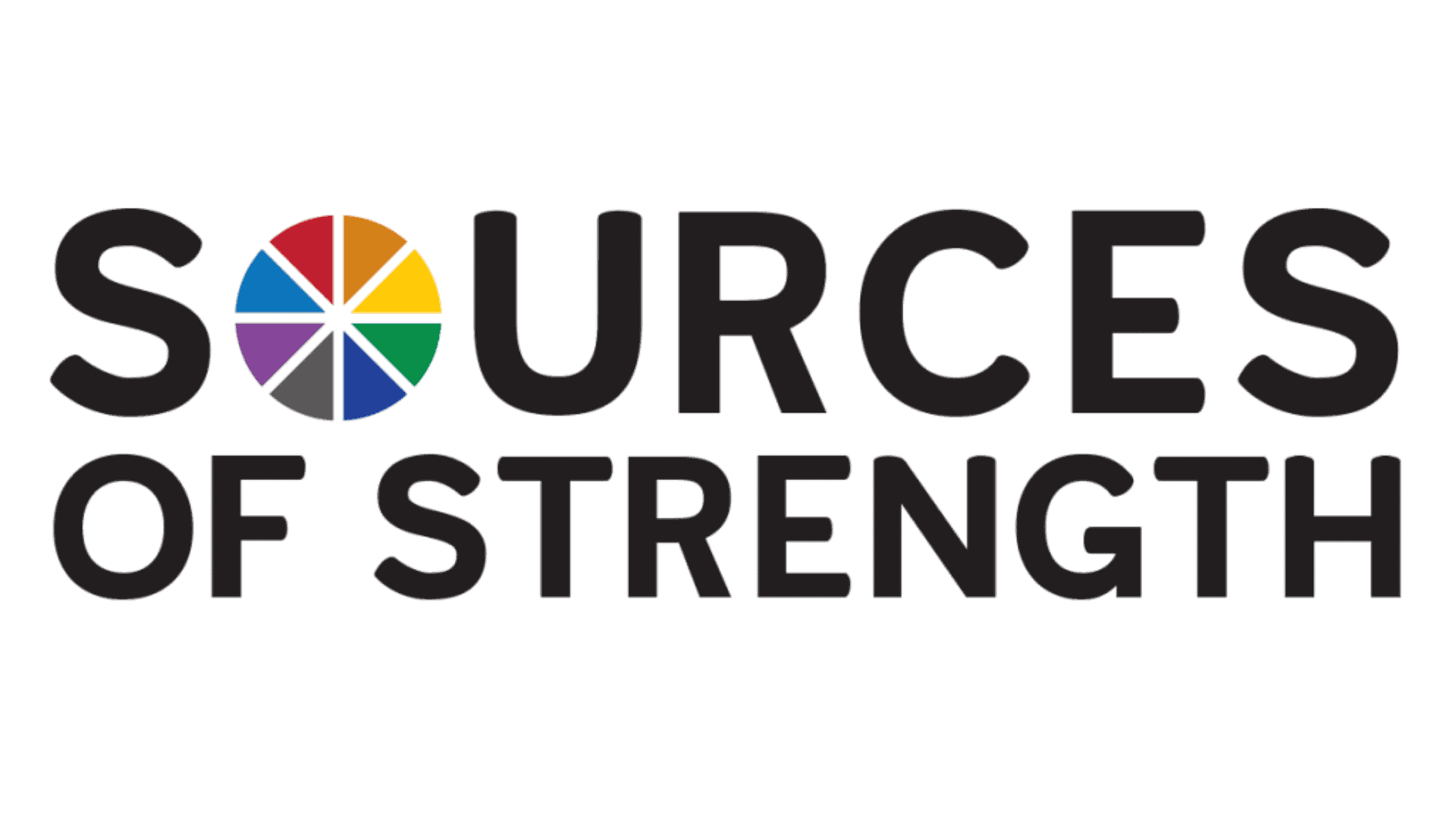Sources of Strength
MODALITY: presentation

Become a Sources of Strength trainer and begin a program at your school or district by visiting the Getting Started page at Sources of Strength. There, you'll fill out a questionnaire and initiate a Discovery call with a team member.

Summary
Sources of Strength is a best practice youth suicide prevention project designed to harness the power of peer social networks to change unhealthy norms and culture, ultimately preventing suicide, bullying, and substance abuse. Sources of Strength is one of the first suicide prevention programs that uses Peer Leaders to enhance protective factors associated with reducing suicide at the school population level. Sources of Strength Peer Leaders are a diverse group of individuals who leverage their personal and collective leadership qualities as well as their social influence in leading the charge in norming and culture change campaigns using strength-based messages to impact multiple issues including suicide.
Implementation
Program Material Cost
$5,000 1st year, $500 for subsequent years
Modality
Classroom Presentation
Setting
Teacher PD, Online, small-assembly (roughly 10% of school)
Grade Level(s)
Elementary
Middle
High
Rubric and Standards
Mental Health Literacy Components
Decreasing stigma
Understanding how to foster and maintain positive mental health
Understanding how to seek help effectively
Understanding mental health disorders and their treatments
High School Learning Standards
Advocate for reducing stigma associated with emotional and mental and behavioral health
Compare & contrast emotional, mental-behavioral illness, mental well-being and concurrent disorders
Describe how self-harm or suicide impacts other people
Describe laws related to minors accessing mental health care
Explain how to help someone who is thinking about attempting suicide
Identify school and community resources that can help a person with emotional, mental and behavioral health concerns
Evidence
Publication Types
2 Peer-Reviewed Publications
Study Types
2 Randomized Control Trials
Study Samples
Countries: Australia, US Sample Sizes: 2,675 and 3,730 Students Grade Levels: 9th to 12th Grade
Major Findings
Training improved the peer leaders’ adaptive norms regarding suicide, their connectedness to adults, and their school engagement. Trained peer leaders in larger schools were 4 times as likely to refer a suicidal friend to an adult. Among students, the intervention increased perceptions of adult support for suicidal youths and the acceptability of seeking help.
Published Studies
Published
Study Type
Sample
Findings
Training more peer leaders increased school-wide exposure for all modalities except
presentation. In multivariate models, exposure to the intervention was consistently higher for students closer to peer leaders in the friendship network and students who named more trusted adults and lower for males. In multivariate models, training more students as peer leaders predicted exposure to poster video and direct peer communication in larger schools. Network characteristics influenced exposure similarly for students with suicidal thoughts and behaviors.
Published
Study Type
Sample
Findings
Training improved the peer leaders’ adaptive norms regarding suicide, their connectedness to adults, and their school engagement, with the largest gains for those entering with the least adaptive norms. Trained peer leaders in larger schools were 4 times as likely as were untrained peer leaders to refer a suicidal friend to an adult. Among students, the intervention increased perceptions of adult support for suicidal youths and the acceptability of Seeking help. Perception of adult support increased most in students with a history of suicidal ideation
